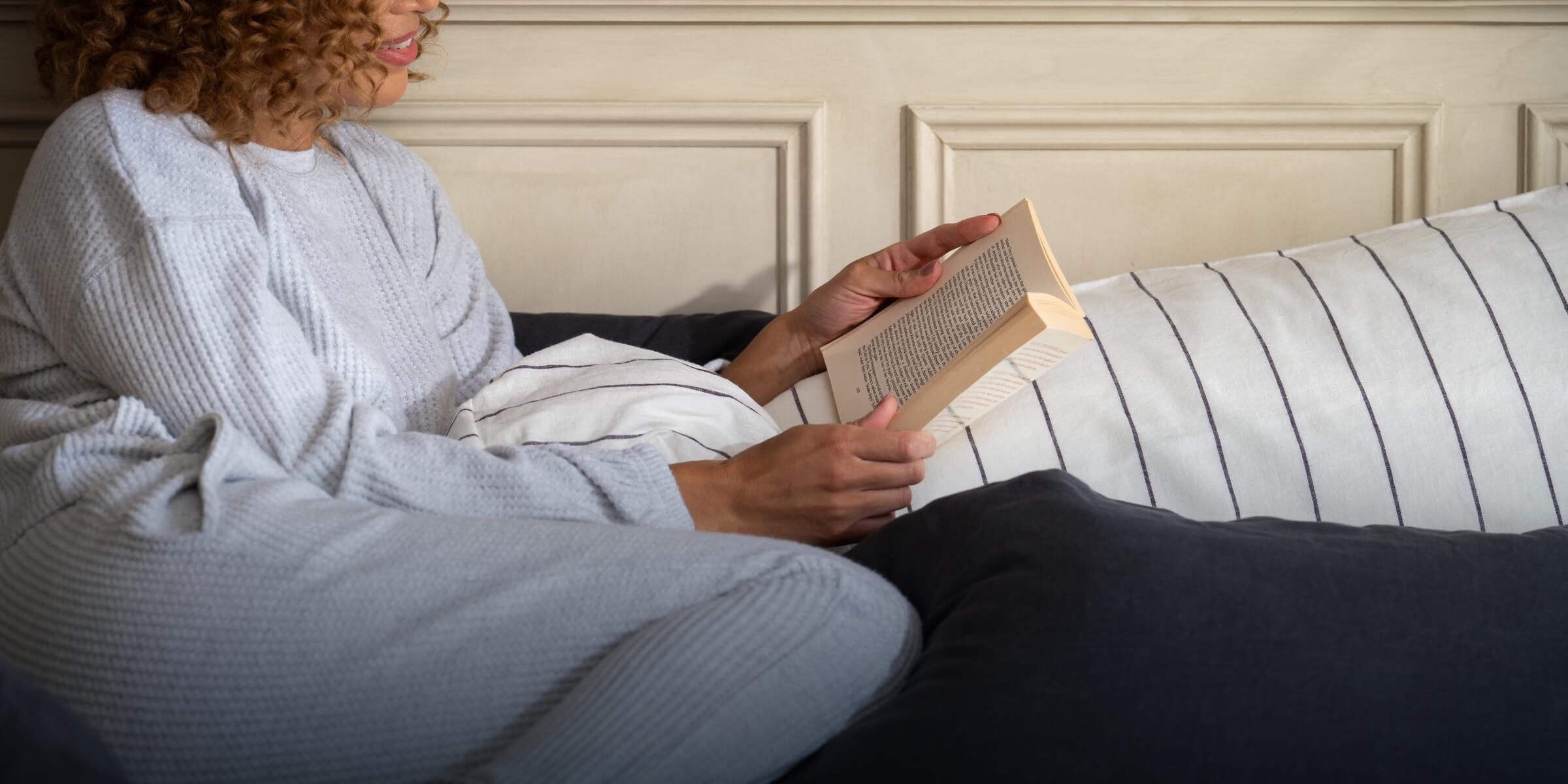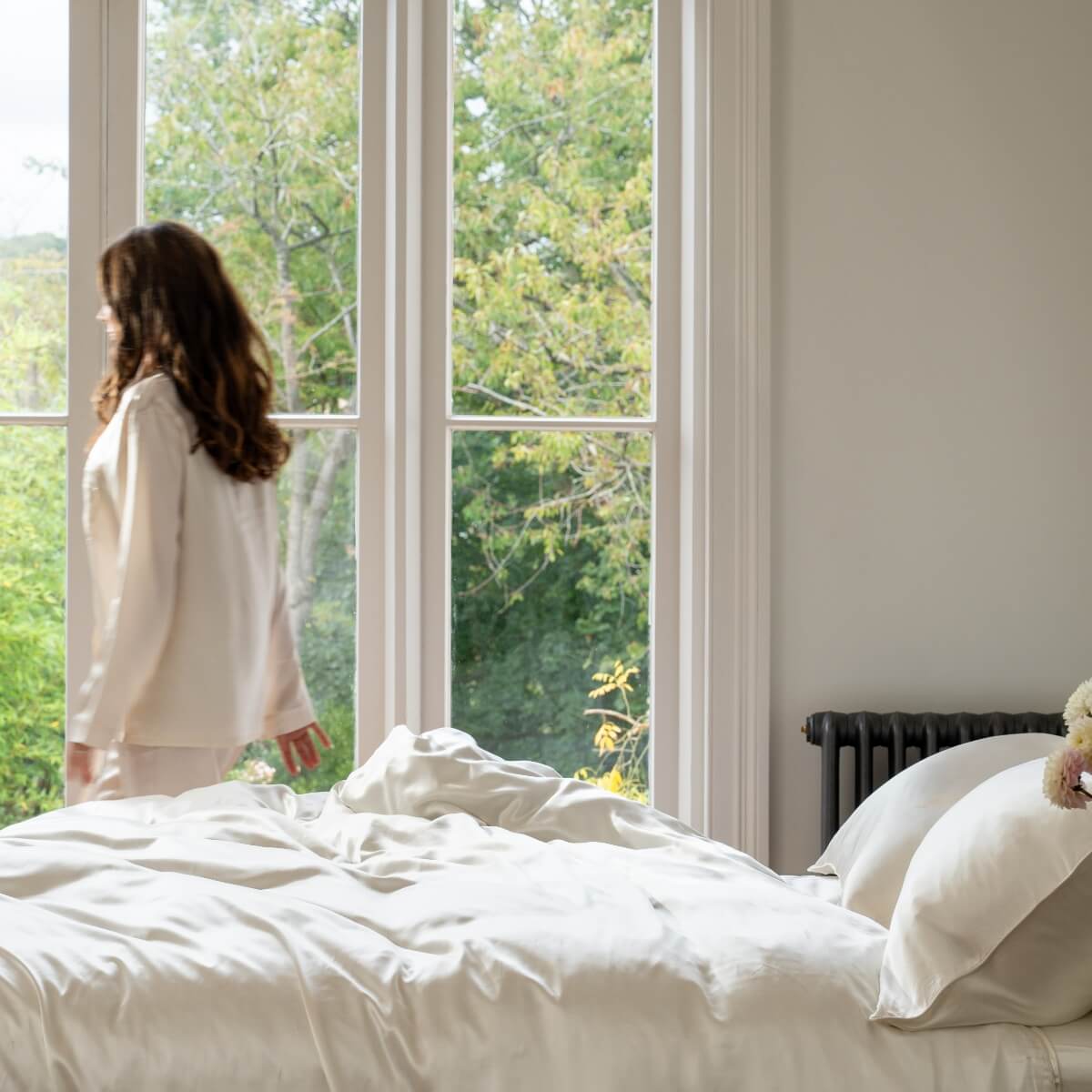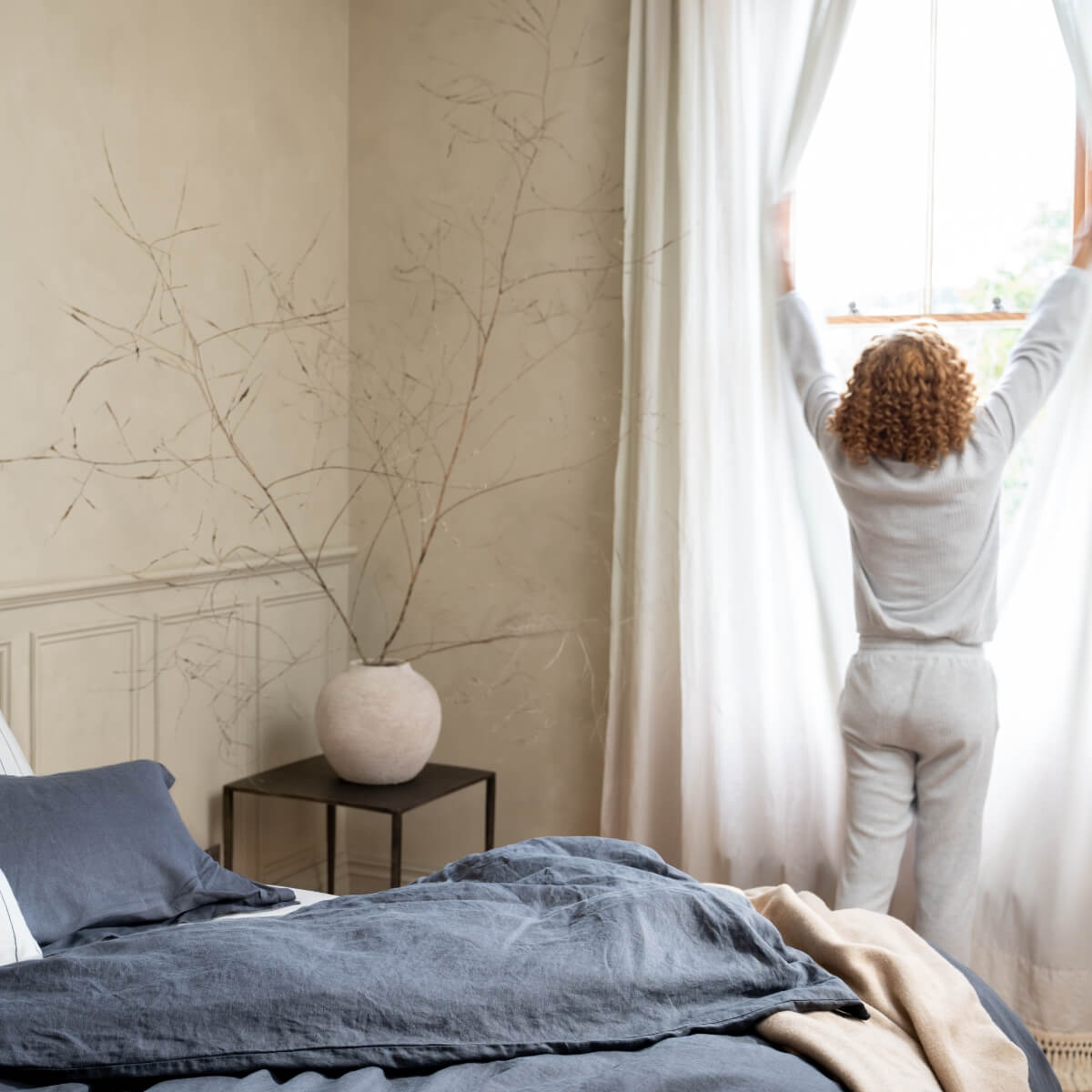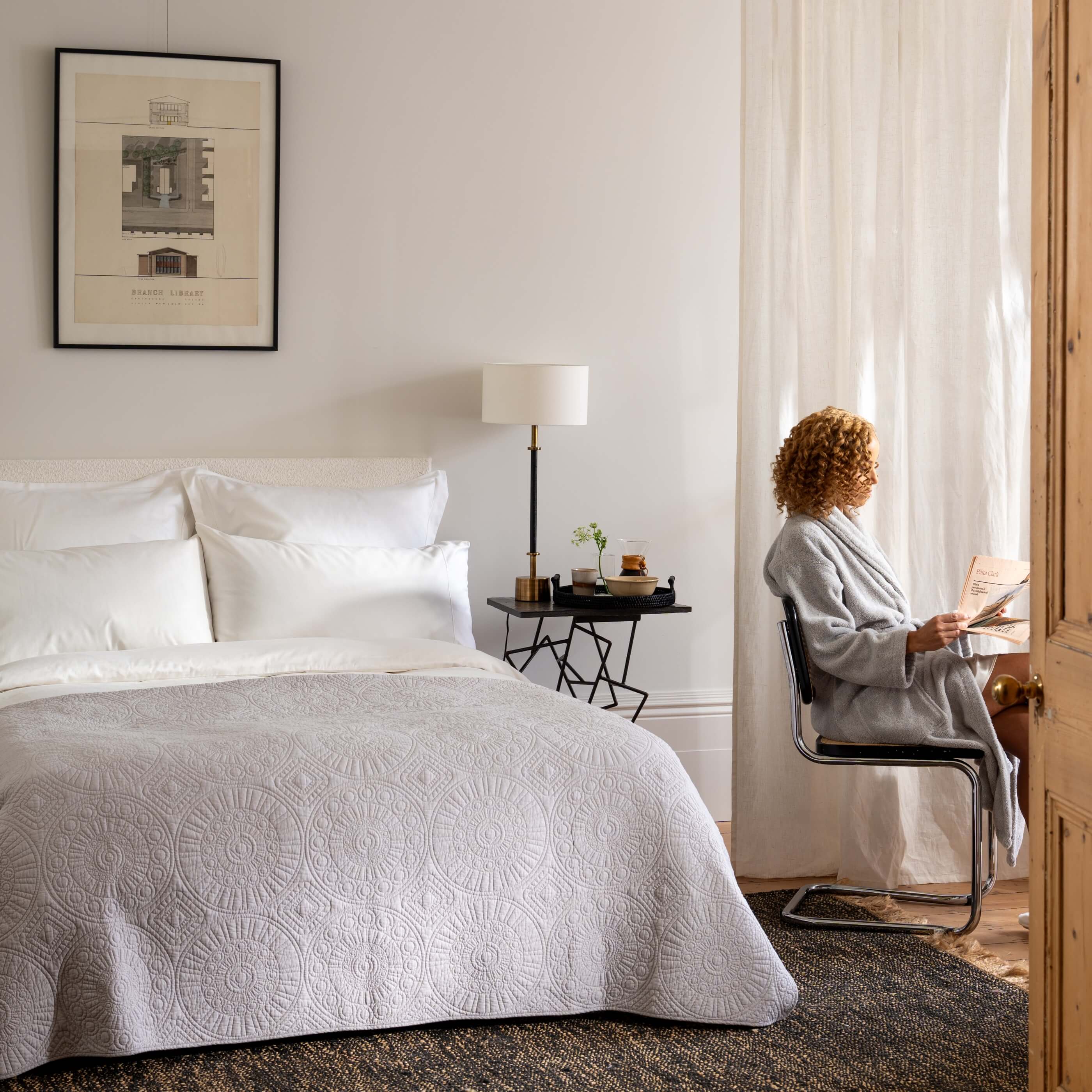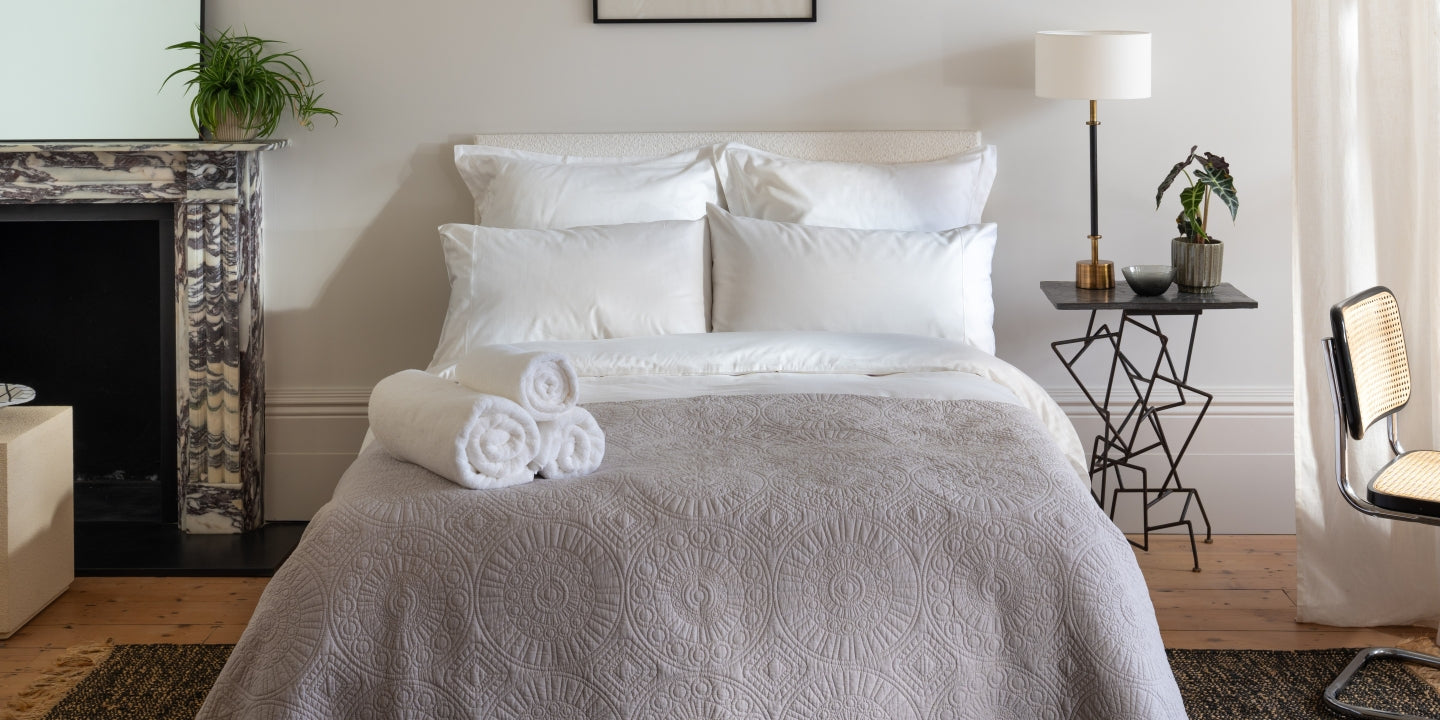How to fix your sleep schedule and wake up earlier
Some of us might feel as if the world is against us when it comes to getting up in the morning. With kids who wake up bright and early, meetings added to your calendar for 8.30 am or pets who want their breakfast when the sun rises, you’re far from alone if waking up early feels like a lifelong battle.
You might reluctantly conclude that your sleep patterns and body clock are just not cut out for modern life. But there is good news. It’s possible to carefully reset your sleep schedule and teach yourself to wake up earlier. We’ll dig into this topic and share advice from Feather & Down’s resident sleep expert, Dr Nerina Ramlakhan.
Why you may be struggling to wake up early
Many factors determine how well we sleep, including our health, job, stress levels, age and lifestyle. But ultimately, our sleep routine is down to our body clocks.
If you’re feeling constantly tired – with excessive yawning, low energy levels, hunger and irritability, there’s a chance your body clock isn’t aligned with your lifestyle.
How to reset your sleep schedule
additional tips to note
Get some regular exercise
Regular exercise helps you fall asleep faster by boosting deep sleep, improving mood, and releasing tension. But avoid vigorous workouts close to bedtime—they raise body temperature and endorphins, which can keep you awake. Finish exercise a few hours before bed or try morning workouts to energise your day.
Find peace and relaxation
Relaxation at bedtime helps you sleep better and wake up refreshed. Try gentle yoga, stretching, meditation, or deep breathing to calm your mind. A warm bath with soothing oils can also help—use the time mindfully by focusing on the water, scents, and sounds to help your brain wind down.
Establish a consistent sleep routine
Establish a consistent sleep routine and you’ll be on your way to better sleep – and easier waking. Good ongoing sleep hygiene – the habits which help you get a good night’s sleep – will mean you start to fall asleep more easily, sleep more soundly and wake to feel refreshed more reliably.
FAQ
Need to get up early for an important event or appointment? Use an alarm clock and place it out of reach so you have to get out of bed to turn it off. Most importantly, do not hit snooze! Instead, head straight into the shower or brush your teeth and wash your face to shake off any feelings of tiredness.
Pulling an all-nighter – or going without sleep for a full day and night – is believed to help some people reset their sleep schedule, however, it’s not something we’d recommend. It’s best done under the supervision of a doctor as it can have harmful effects. It may also make it dangerous for you to drive and carry out otherwise everyday tasks.
There are many reasons that you may find it difficult to fall asleep early. This might include:
- Drinking too much caffeine during the day
- Eating too close to bedtime
- Exercising too close to bedtime
- Stress and anxiety
- Hormonal fluctuations
- Your body clock
Finding the reason is useful to help you know what needs to change to get better sleep.
To reset your sleep cycle, it’s best to take things a step at a time. Try moving your bedtime and waking time forwards by 15 minutes or so every few days. Doing this will gradually help your sleep cycle adjust. You should also try to go to bed and wake up at the same time every day so that your body gets used to the new pattern.
reparation is key if you want to fall asleep within 5 minutes. So, take the time before bed to relax your body and mind, make sure your bed is comfortable and that your bedroom is calm, dark and at the right temperature. You should also avoid caffeine, alcohol, rich food and exercise in the run-up to bedtime as well.
Once you’re in bed, use proven relaxation techniques to help you drop off quickly. One of the easiest to follow is the 4-7-8 breathing technique where you breathe in for 4 seconds, hold for 7 seconds and exhale for 8 seconds. As well as calming your body, it focuses your mind on your breath and leaves you unable to think about the things that may otherwise keep you awake.



